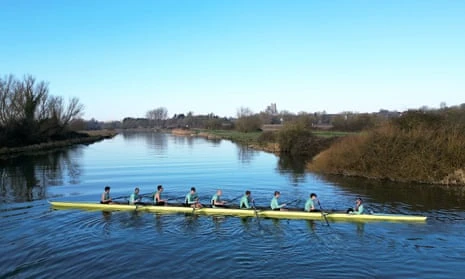The Boat Race Controversy: Eligibility Disputes and Legal Challenges

Image credits: Joe Giddens/PA
Background and Context
The Boat Race is an iconic annual rowing competition between the University of Cambridge and the University of Oxford, with a rich history dating back to 1829. The event attracts significant attention and participation from both universities, with students training rigorously to represent their institutions. However, recent eligibility disputes have cast a shadow over the event, with some students facing bans from participating.
Eligibility Disputes and Legal Challenges
At the heart of the controversy is the decision to ban three Cambridge students from participating in the upcoming Boat Race, citing eligibility issues. Lawyers argue that this decision may be unlawful, highlighting potential inconsistencies in the application of eligibility criteria. This development has sparked intense debate about fairness, equality, and the criteria used to determine student eligibility for the event. The dispute not only affects the students involved but also raises broader questions about the governance and regulation of university sports.
Implications and Future Directions
As the controversy unfolds, it is clear that the outcome will have significant implications for the future of The Boat Race and potentially other university sports events. The legal challenge underscores the need for clear, consistent, and fair eligibility criteria that ensure all participants have an equal opportunity to compete. Furthermore, the dispute highlights the importance of transparent governance and the role of legal frameworks in resolving sports-related conflicts. As the rowing community and the universities involved navigate this complex issue, the focus remains on finding a resolution that upholds the principles of fairness and sportsmanship that The Boat Race embodies.



Related Tags